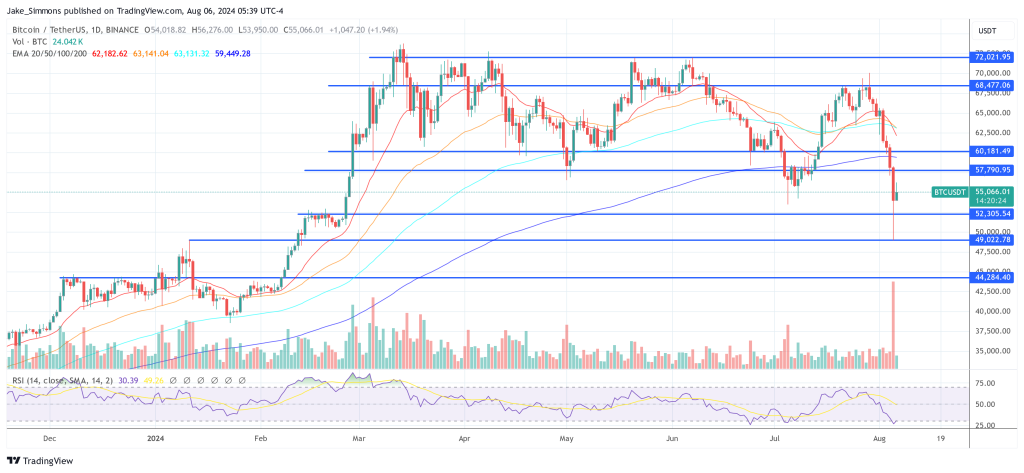- August 6, 2024
- Posted by: admin
- Category: BitCoin, Blockchain, Cryptocurrency, Investments
Jeff Park, Head of Alpha Strategies at Bitwise, which operates the fourth-largest spot Bitcoin ETF in the US with assets under management totaling $2,039 billion, presented a bullish outlook on Bitcoin via X. His analysis ties the historical economic decisions and current global financial conditions which he believes “is unbelievably powerful” for Bitcoin.
Why Japan Can Gain Significantly From Bitcoin
Park contrasts the 2024 economic downturn with the crises of 2008 and 2020. He notes that while previous downturns had clear culprits or were due to extraordinary circumstances, the current situation involves complex international dynamics, primarily influenced by Japan’s economic policies. Park explains, “This current spiral of 2024 is seemingly led by Japan, which from the US perspective requires an international cooperation context in addition to its own domestic economic desires.”
He then delves deeper into the historical backdrop of the Plaza Accord of 1985, a crucial yet often overlooked event that reshaped global economic leadership by devaluing the dollar to curb Japan’s economic ascent. Park states, “Contrary to popular Western myth, Japan didn’t mysteriously enter into ‘the lost decades’ of stagnation by itself randomly.” He describes the accord as a strategic move by the US to maintain economic dominance, which subsequently led to Japan’s long-term economic stagnation and initiated the so-called Carry Trade.
Park critiques the Federal Reserve’s current approach, emphasizing that it is not solely focused on domestic objectives like unemployment and price stability, but is also deeply intertwined with global economic conditions. He argues, “The US cannot just cut rates on their own without offending the rest of the world. It has real ripple effects to a country like Japan.”
The researcher further criticizes the modern financial architecture, which he believes has been characterized by decades of “artificial suppression and stealing,” particularly from Japan and the asset-poor younger generations. He asserts, “This is about the very core of the modern financial architecture, with thirty years of pent-up artificial suppression and stealing—from the youth, from the asset-poor, and I’m going to make the case here—from Japan.”
Amid these criticisms, Park champions Bitcoin as a pivotal tool for financial inclusion. He highlights that while discussions often focus on emerging markets like Argentina and India, developed countries like Japan stand to gain significantly from Bitcoin.
Park argues that Bitcoin provides a unique opportunity for Japan to decouple its monetary policy from the influence of the US dollar, addressing its structural leadership and demographic challenges. Concluding his analysis, Park shares his long-term bullish stance on Bitcoin, predicting a significant revaluation in the wake of the current financial crisis.
He elaborates, “Not today, and likely not tomorrow, but still much sooner than I expected in my own lifetime. This financial crisis is the mother crisis, the original sin – and it’s global, generational, geopolitical. Even without a global implosion, the narrative will be out and people will wake up to why BTC is valuable. Once the selling pressure ends, out of the ashes will emerge the most glorious phoenix the modern financial world has ever known—and rise, rise, rise we will.”
At press time, BTC traded at $55,066.
